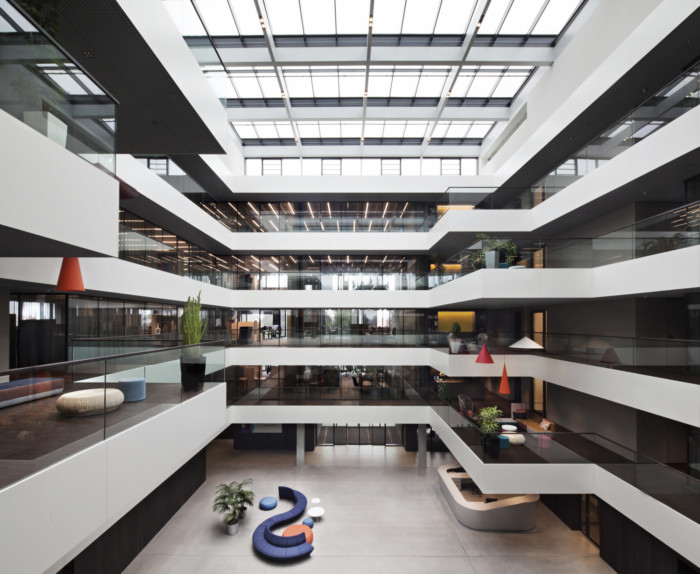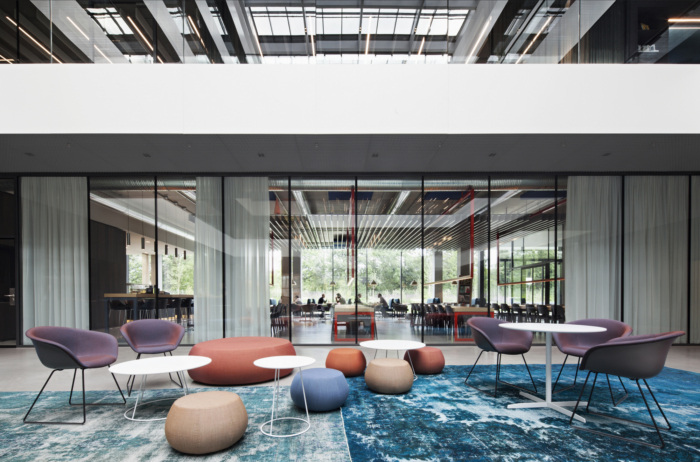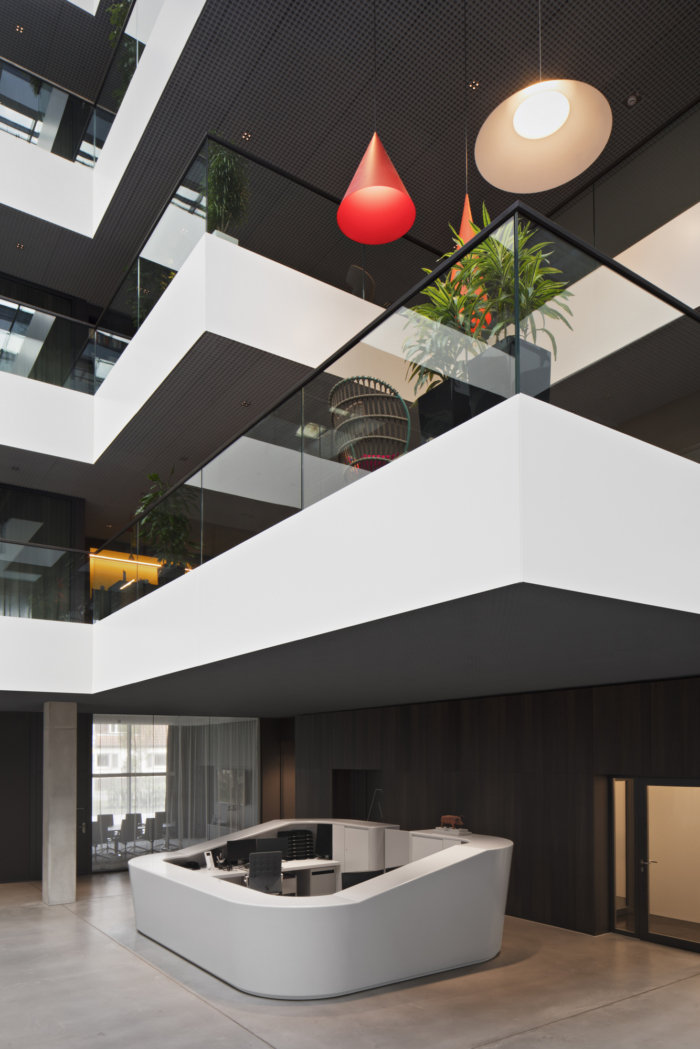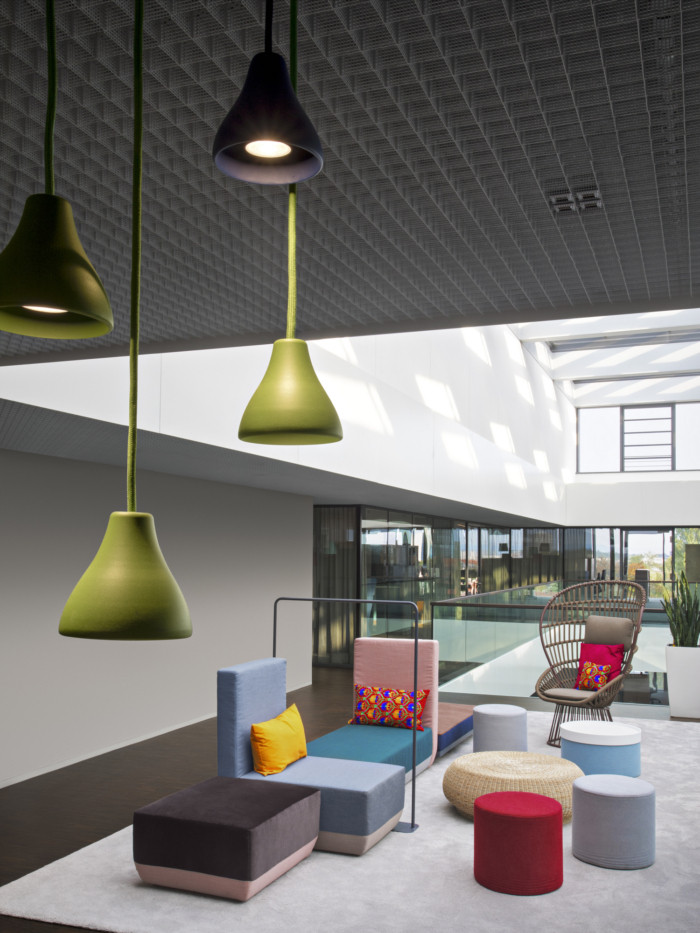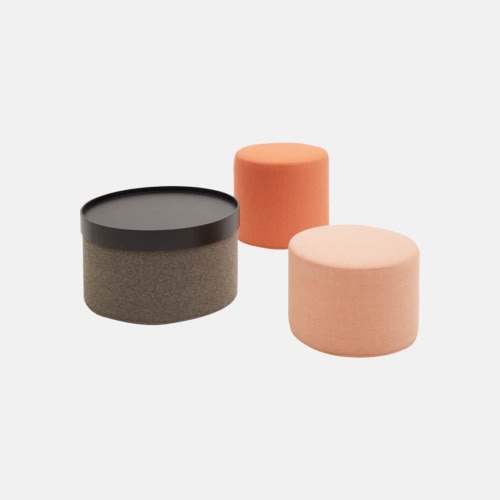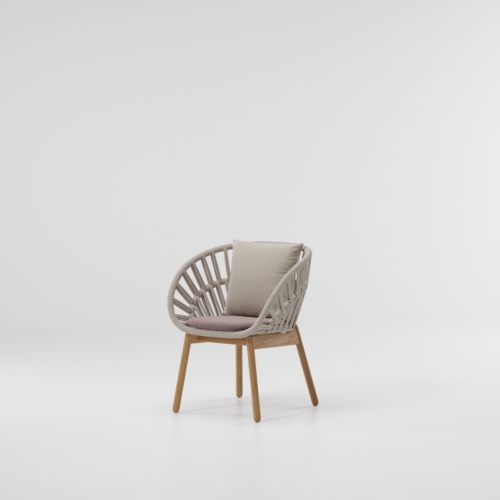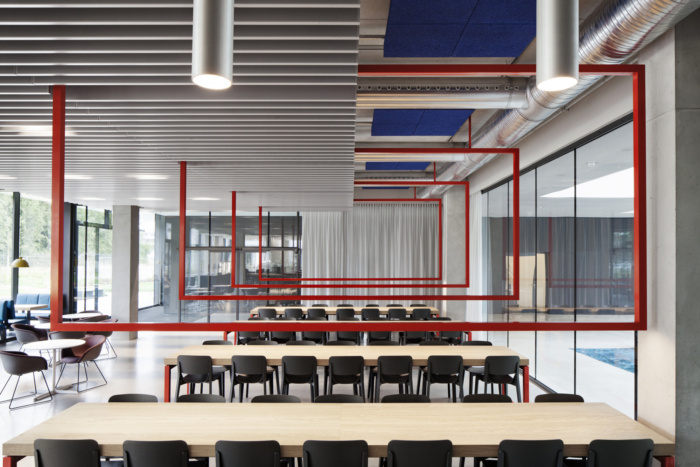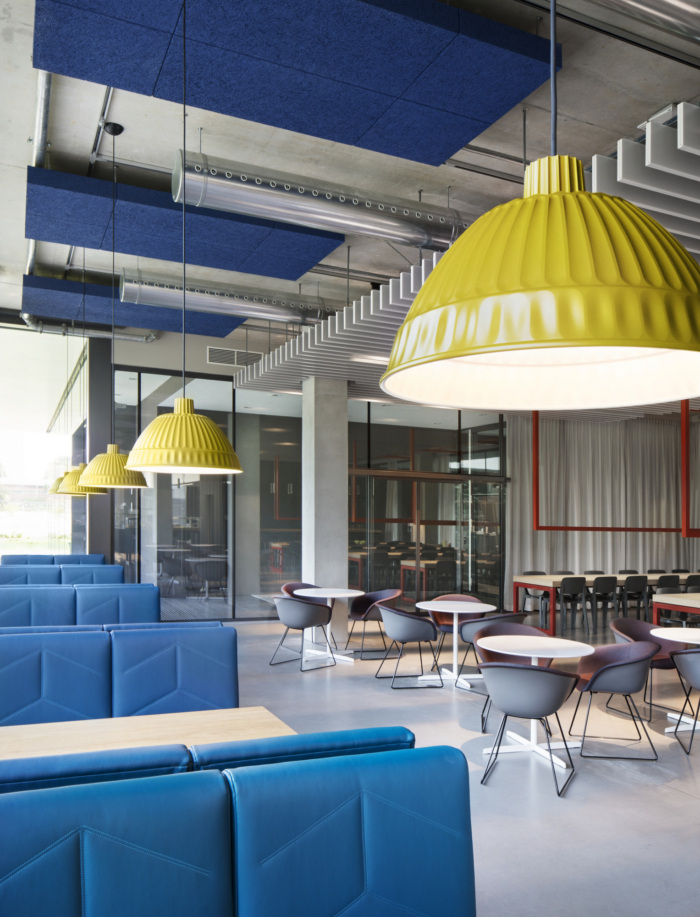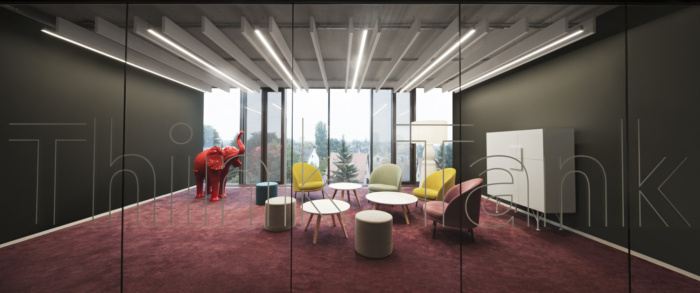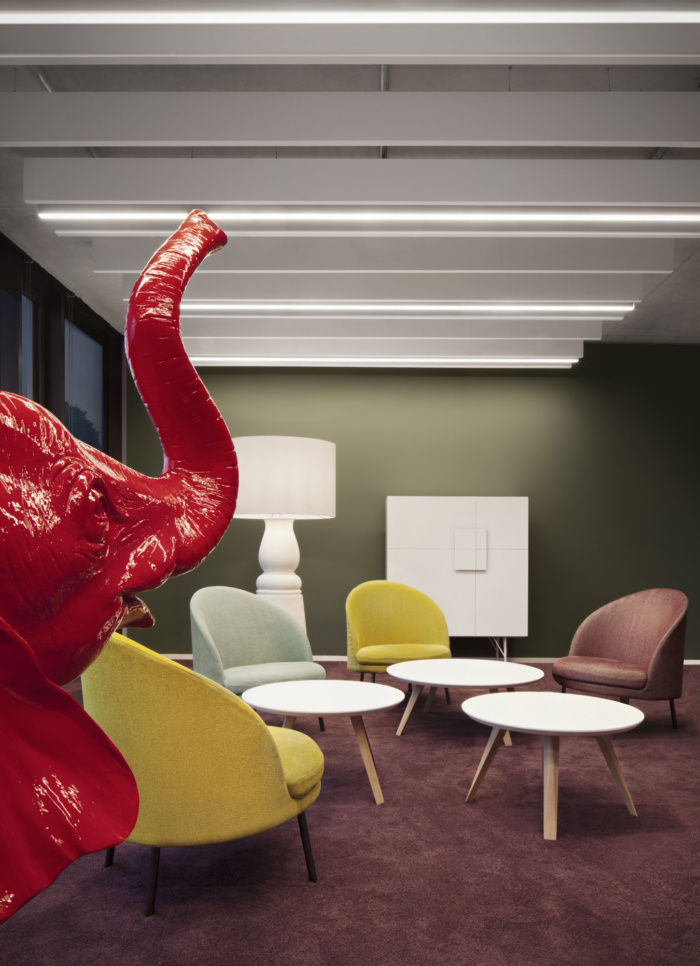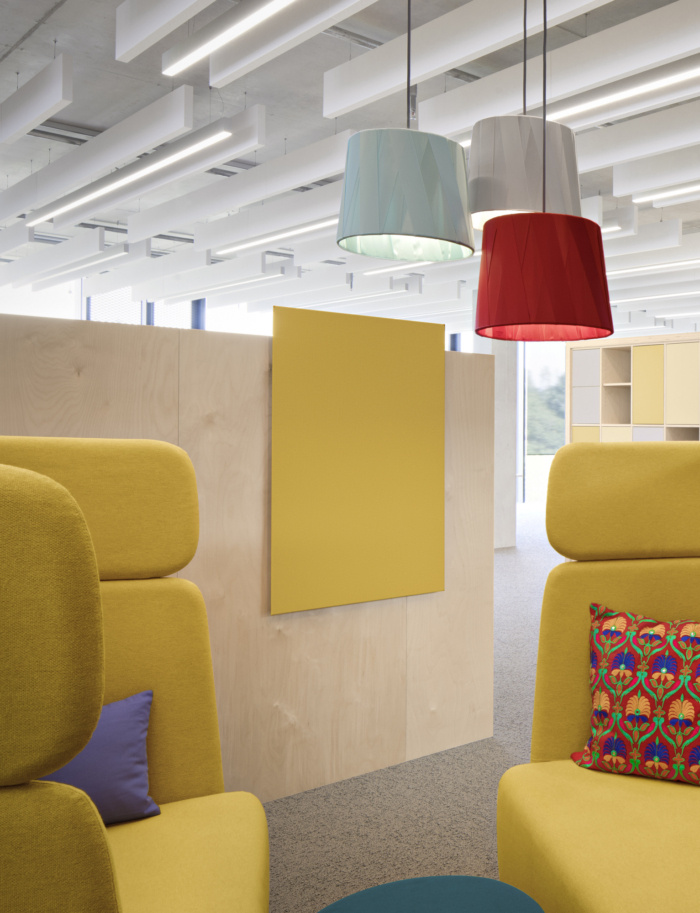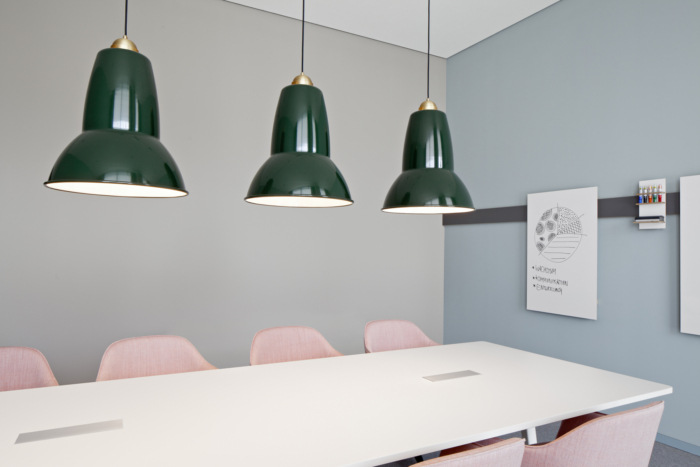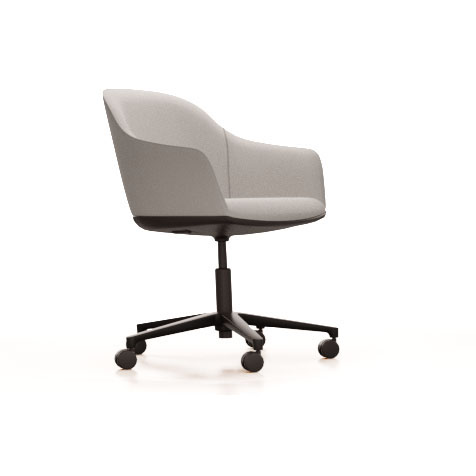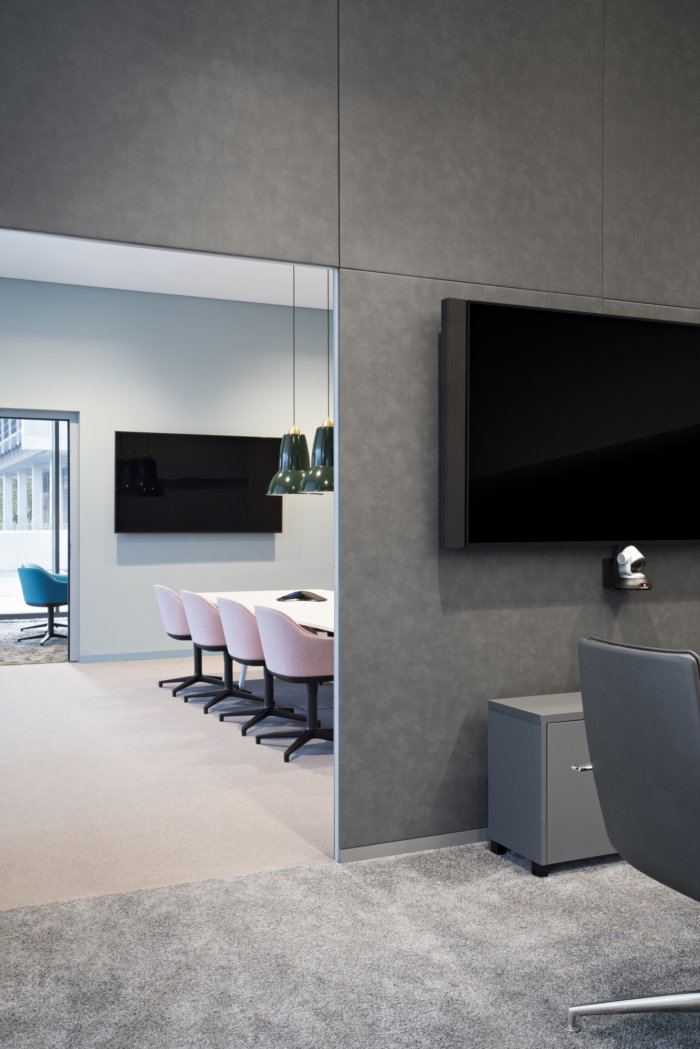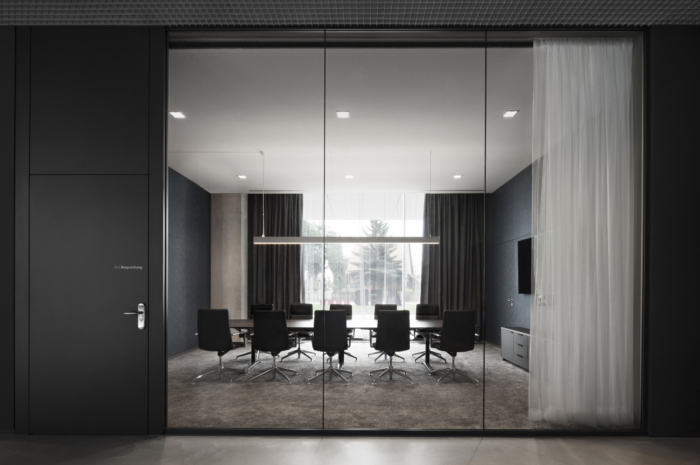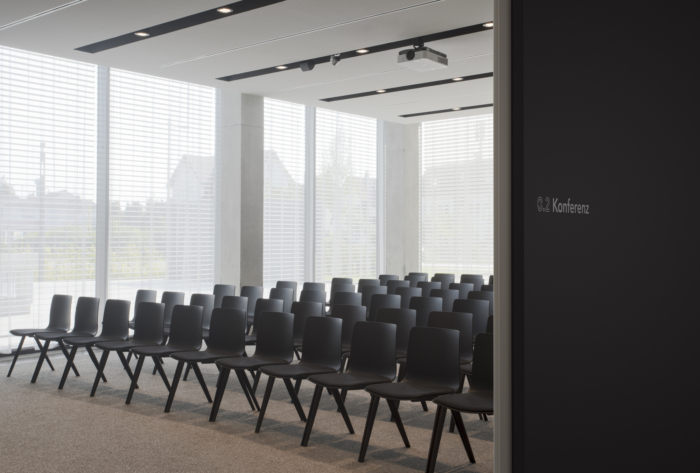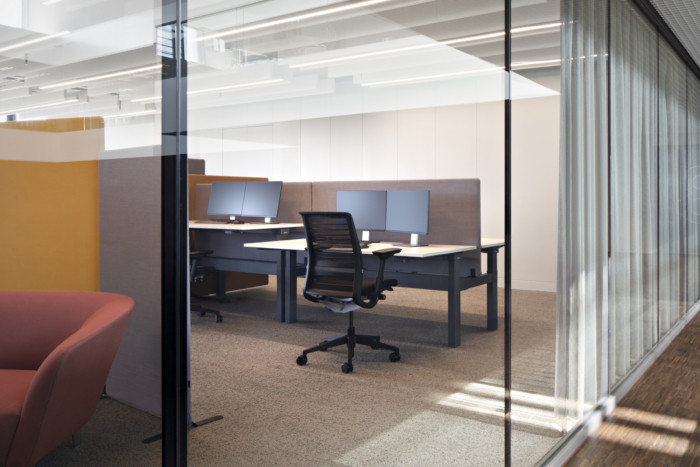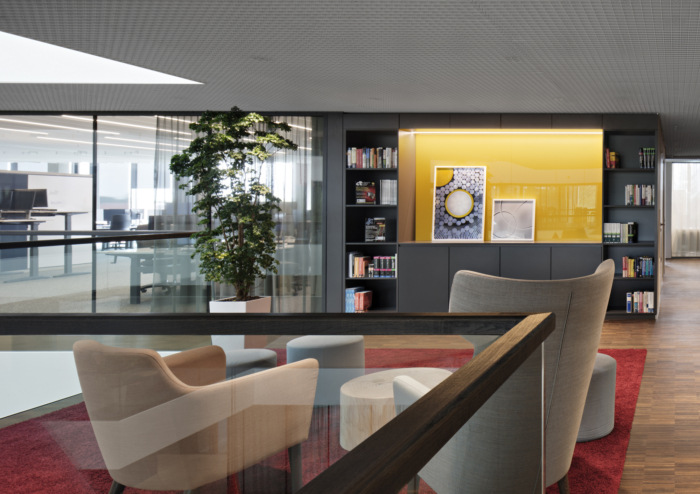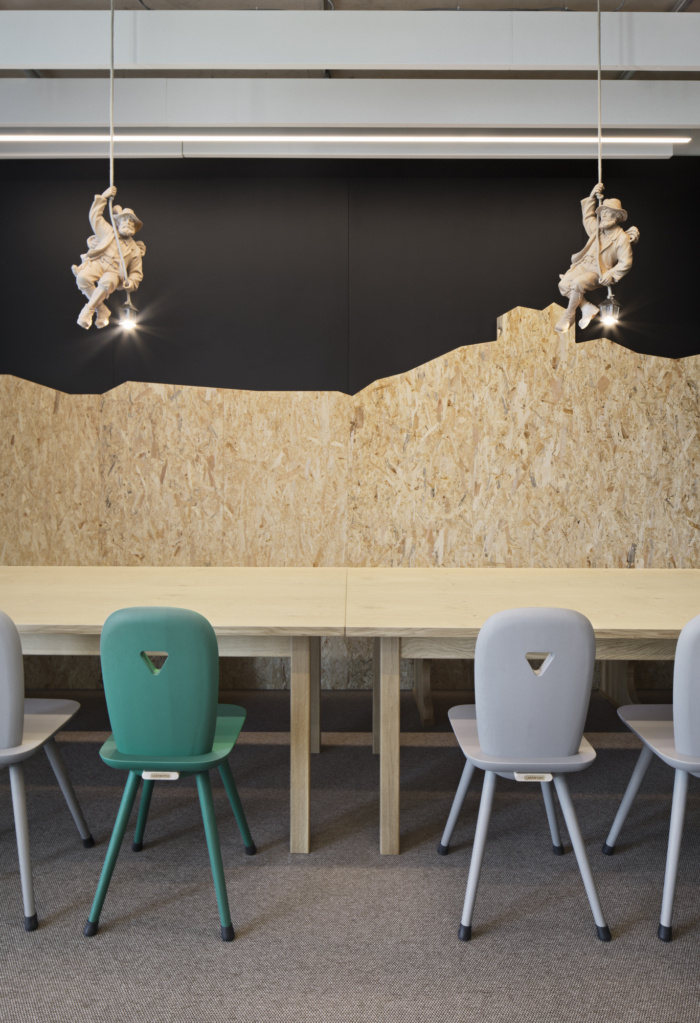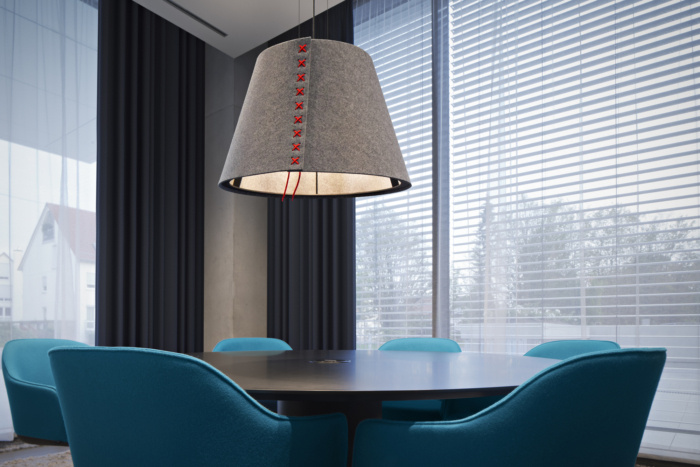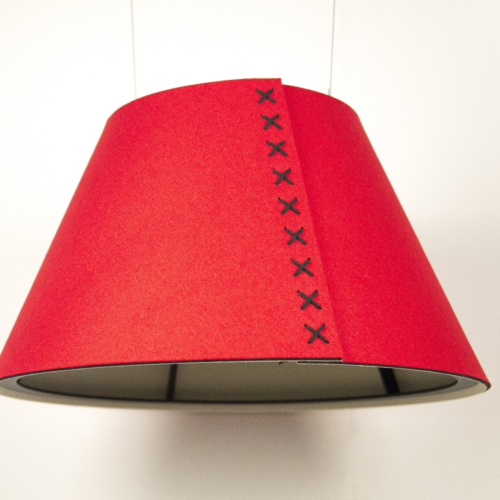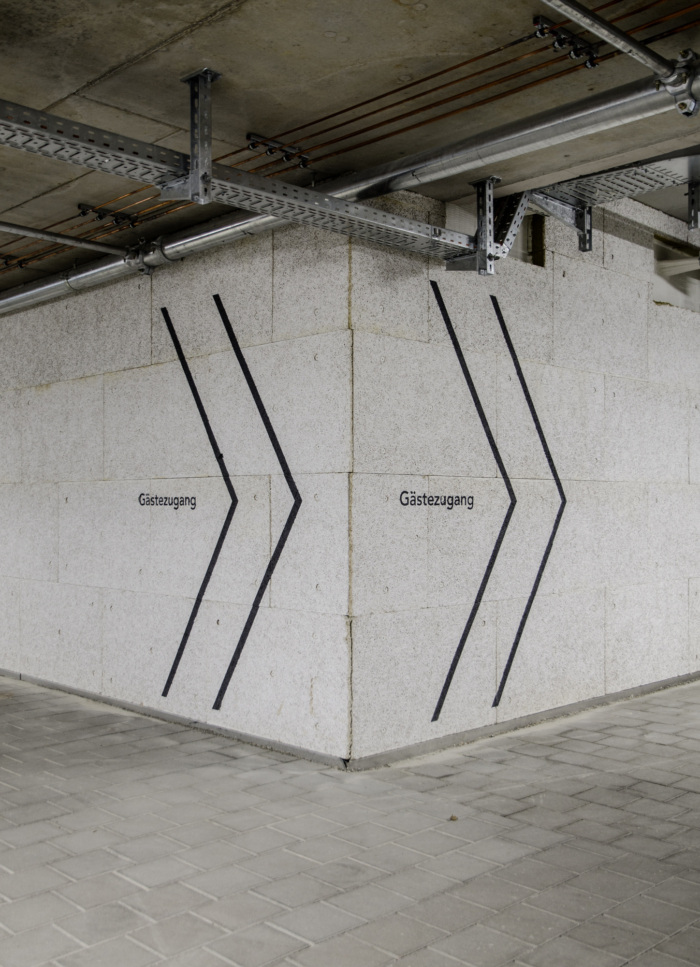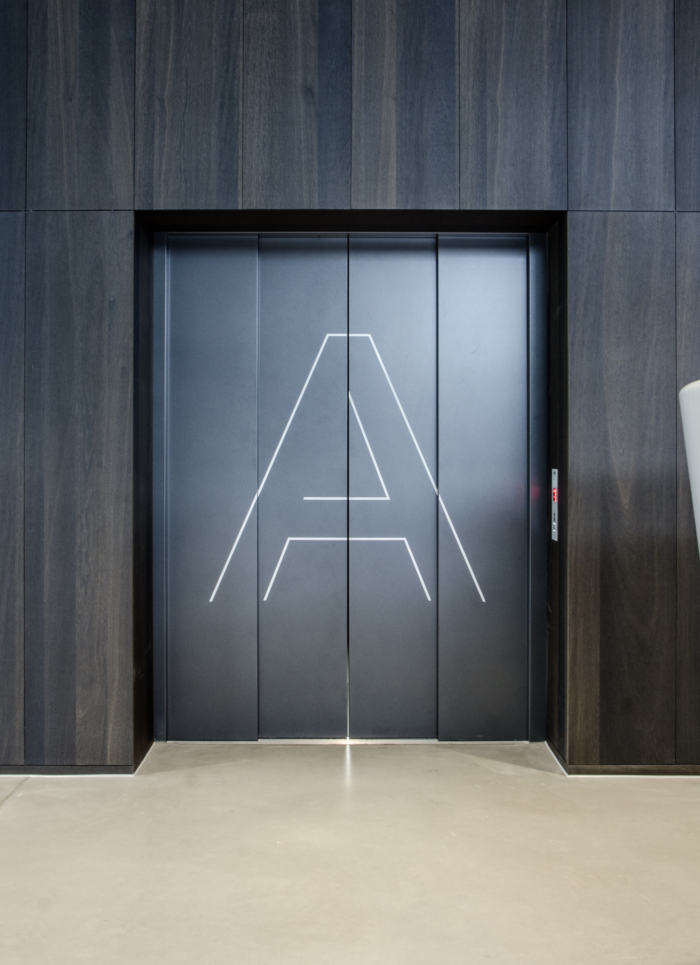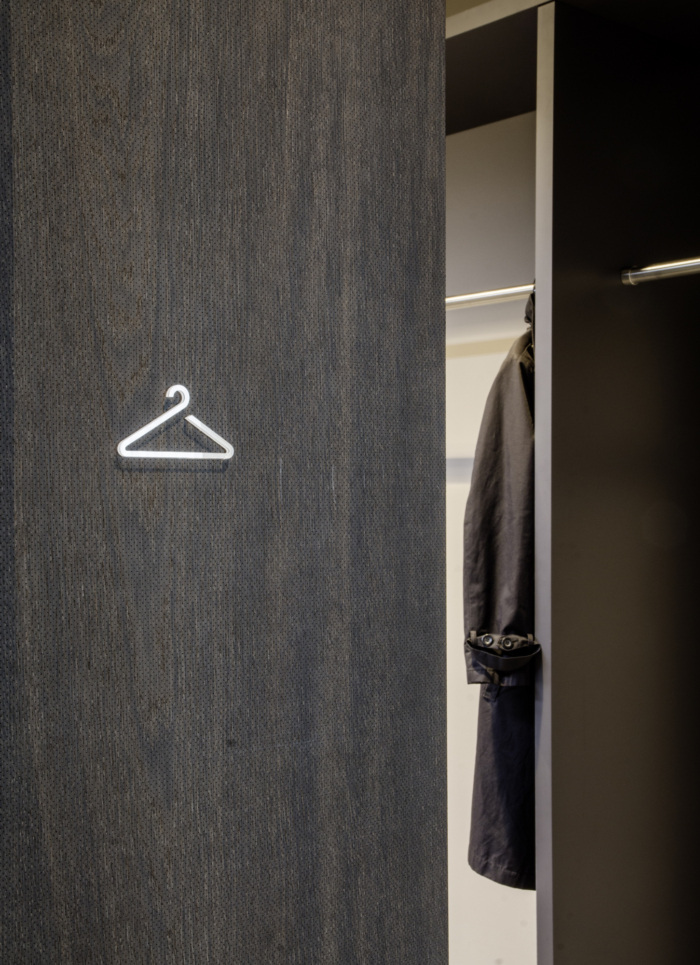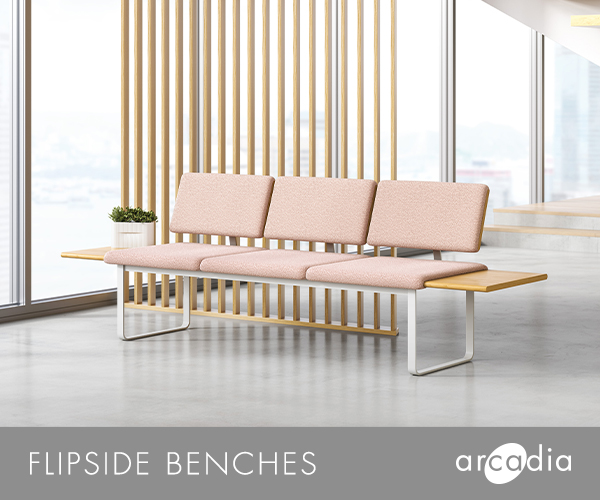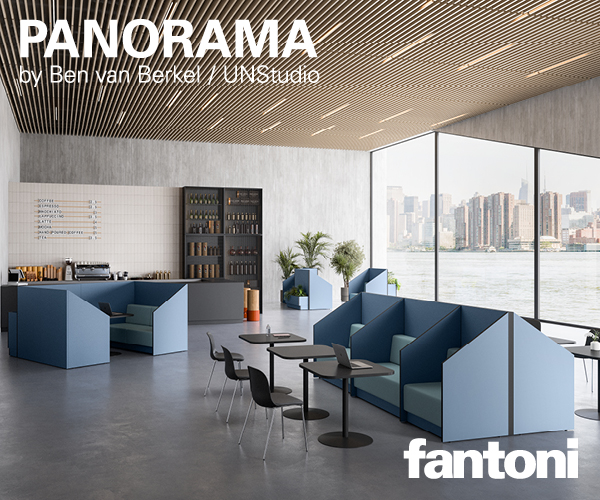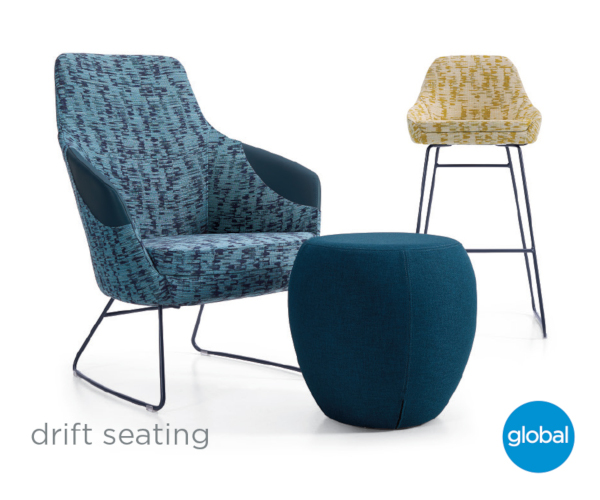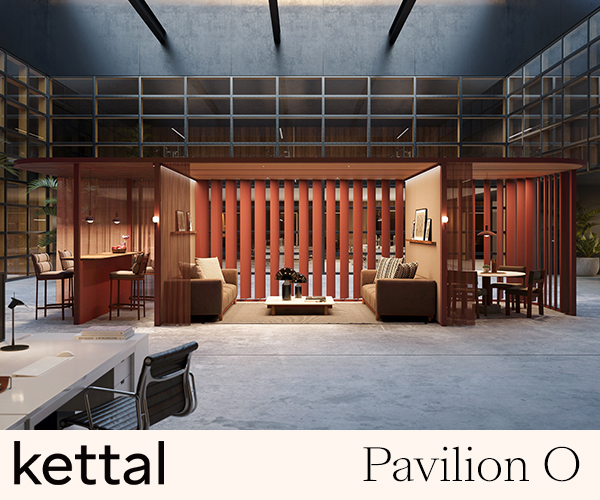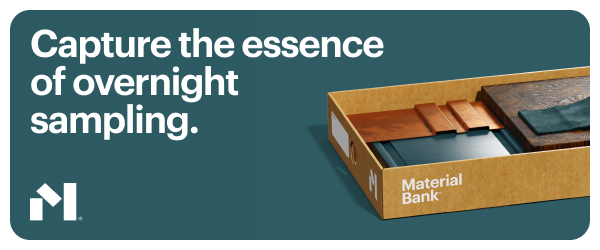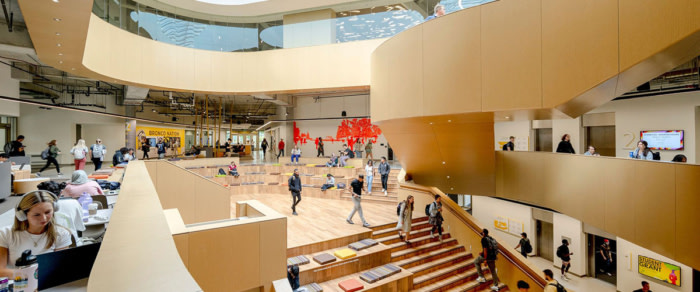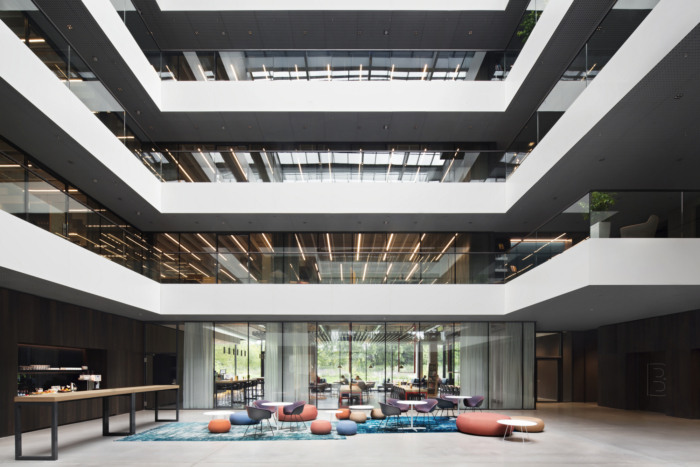
AEB Headquarters – Stuttgart
Fulfilling a lifelong dream of the software company founder, all AEB employees are now unified under one roof at the 155,000 square foot headquarters in Stuttgart.
Ippolito Fleitz Group and Riehle+Assoziierte developed a unifying design for the headquarters of software company, AEB, located in Stuttgart, Germany.
The new Stuttgart-Möhringen headquarters of AEB, a leading manufacturer of logistics and foreign trade software, fulfills a life dream of the company’s founder: to unite all employees in Stuttgart under one roof. Stuttgart-based architectural firm Riehle+Assoziierte has designed a new building that fulfills the desire for a transparent architecture. The office space with its 400 workstations is arranged around a four-storey-high atrium that allows for circumferential movement. We in turn have created a differentiated offering of work and communication worlds, effectively translating the company philosophy “offen.kundig.eigen.bestimmt.weiter.führend.gut” into a stimulating interior architecture.
It is immediately apparent on entering the building that there is much more going on here than just open-plan office space. Communication is an integral part of the working method and mind-set at AEB. This is immediately visible and palpable: from the reception area, your gaze travels past a deconstructed lounge island, through a wide expanse of glass and into the canteen, which is essentially part of the lobby thanks to the transparency. Balconies that project out into the open atrium offer informal communication zones with varying levels of intimacy. The use of frameless glass and glass balustrades enables flowing transitions, as well as changing vistas and insights into the multifunctional spatial constellations. The open airspace allows for continuous sight axes and visual connections from the entrance area all the way up to the fourth floor. The interior space positively breathes the spirit of the company’s guiding philosophy.
The canteen is the most important locus of informal communication; partaking of lunch is only a small part of what goes on here. A range of seating in the form of large tables, intimate booths, casual bistro chairs and the direct juxtaposition to the garden create a restaurant-like atmosphere with multiple seating qualities. Red light frames above the refectory tables structure and zone the space without creating any barriers.
Informal communication zones can be found on every floor on the large and small balconies, which are located in diagonally opposing corners of the square atrium floorplan. On the large terraces that overhang the atrium, deep-pile carpets create lounges with diverse seating possibilities from throne-like armchairs and flexible sofa landscapes to moveable poufs. Adjacent kitchenettes transform these areas into communicative zones for informal meetings and brief discussions. Bold pendant luminaires set striking highlights on the large balconies and serve as a vertical connection between floors. On the smaller, recessed balconies, it is all about creating a front room ambience. Seating groups with wing chairs and a library with specialist literature create a quiet place where employees can work undisturbed.
All employees work non-territorially in open-plan areas. Personal items can be stored in lockers integrated in the wardrobe units. Employees can choose from a differentiated selection of workstations: from height-adjustable workbenches and standing workstations to standing conference situations with integrated monitors. In the larger offices, alcoves provide intimate corners and help establish a cosy atmosphere. In the square floorplan, the diagonally opposing cores A and B have been assigned the colours yellow and blue for easy orientation.
Every floor also has a themed room that can be used for larger meetings, as a place of retreat or for in-depth group work. Small cocktail chairs on a fluffy carpet, standing lamps and a cupboard transform the “Thinktank” into a living room. A large red elephant initially appears disruptive, but then allows ideas to take flight. On the fourth floor, the “Albflug” offers views that stretch as far as the Swabian Alb. Modern interpretations of traditional inn furniture like corner benches and rustic chairs create an earthy yet by no means conservative ambience. The “Bastelraum” or craft room does exactly what it says on the door: a large workbench and a wall of work materials invite employees to take part in creative meetings. The “Digital Lab” is the place for the technology-minded to test the latest technologies and conduct research with 3D printers and virtual reality.
The ground floor houses conference rooms with different qualities of mood. Colour worlds range from a representative, factual green, via inspiring pink and green, to concentrated blue, transforming the rooms into places of creative communication or quiet contemplation.
The new office building finally offers a home to all AEB employees in Stuttgart. The work worlds that have been created within bear testimony to a readiness to change, a boldness and an openness with which the company can look forward to the future.
Designer: Ippolito Fleitz Group and Riehle+Assoziierte
Design Team: Arsen Aliverdiiev, Gunter Fleitz, Frederik Gordt, Peter Ippolito, Kamil Kaczmarek, You Seok Kirschenmann, Claudia Lira Grajales, Mario Rodriguez, Charlotte Scheben
Photography: Alec Bastian, Roland Halbe
